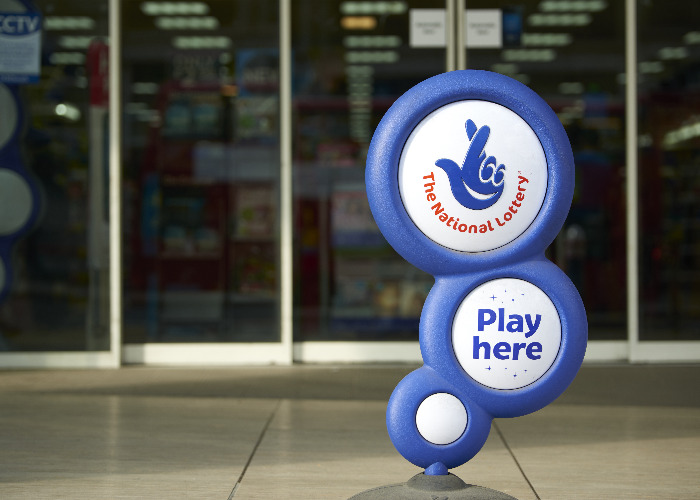Opinion: The National Lottery risks goodwill and good causes for good profits

Our writer’s worried Camelot’s profits are growing far too fast and leaving the good cause fund behind
When a private company makes a profit, that’s a good news story, right?
As long as it is paying its taxes and not causing harm, it can only be good for shareholders and employees for that company to grow and succeed.
But that cannot be true for a company that only has a licence to operate because of the intention it will provide a large amount of support for good causes.
And that’s why the news that Camelot is seeing record profits while the amount going to good causes falls is deeply problematic.
Parliamentary scrutiny
The revelations came earlier this month from Parliament’s Public Accounts Committee. It found that the amounts being raised for good causes had risen by 2% between 2009/10 and 2016/17.
But over the same period, the amount of profit made by Camelot increased from £39 million to £71 million – that’s a 122% increase.
The problem appears to be that good causes gain 30p in every pound spent on tickets for the draw-based games, but as little as 10p in every pound for scratch cards.
Whether because the price of draw tickets has doubled from £1 to £2, or because we like more instant gratification these days, sales of draw tickets have fallen and we’re spending more on scratch cards.
“Raising money for good causes is one of the founding principles of the national lottery but this objective is under threat,” says MP Meg Hillier, chair of the committee.
“It would be a sad and significant loss to many deserving organisations and individuals if that funding, which has amounted to some £37bn since 1994, should dissipate as a result of inaction now.
“Our report lays bare the need for a concerted effort from government, the Gambling Commission and Camelot – a monopoly supplier whose profits more than doubled in seven years while returns for good causes grew by just 2%.”
Camelot is effectively a monopoly supplier, which makes these profits particularly unacceptable.
We can’t just move our business so we rely on the government to police their behaviour and ensure the National Lottery remains good value for the country.
High risk
There are problems with the idea of a state-sanctioned national draw like the National Lottery.
The trouble with any kind of state-sanctioned lottery is that it mainstreams gambling, meaning there’s a risk it can act as a gateway drug for some people.
I’m concerned that the rise in sales of instant games might well mean that’s a growing concern. Of course, Camelot does undertake work to mitigate that risk. It is not casual about the risks of gambling.

However, the committee of MPs has urged Camelot to do more to support gambling addiction education and is also noted that the low stakes for the lottery and scratch cards make them appealing to some teenagers, which could lead them towards a problematic path.
My feelings are that the risk posed by a national gambling opportunity like the lottery is only worth it if the returns to British good causes are huge. And even then it’s not clear-cut.
So when a company grows its profits to the extent that Camelot has, I can’t help that I begin to wonder if this is the right organisation to be operating this business.
Good business
Look, I’m not a business legacy expert and I have never worked for a large organisation.
But it strikes me that this kind of short-term profit-making can only happen at the expense of the company’s future.
After all, while it may have been granted a licence that’s been extended to 2023, these damaging stories about rising profits and falling payments to good causes risks alienating the public.
That could severely reduce their chances of successfully being granted a fourth licence. If Camelot has any sense it will surely ensure a greater portion of their income goes to good causes or it risks running out of good will.
Read more: 20 lottery winners who blew the lot
Final thought
I’m not opposed to a national lottery. I like a buy a lottery ticket occasionally, although I do think that scratch cards and instant online games can be a risk for addictive personalities – and they are a long way removed from the original draw idea.
However, if we’re going to have a state-approved national lottery like this then there has to be demonstrable good to the country, to offset any risk posed by such state-sanctioned gambling.
With a product like the National Lottery, the product itself is dependent upon the goodwill of the nation.
Providing funds to good causes is part of the product; we’re not just buying a chance to win money we are donating to important and valuable causes across the country.
If there’s a greater good going to the company rather than the good causes then it’s right that questions are being asked and right that the government is being urged to apply pressure.
The nature of the National Lottery means that, more than any other business in Britain, Camelot relies on good causes, goodwill and good corporate responsibility.
Right now it seems to be risking all that to turn a quick profit.
What do you think? Is it okay that profits should rise while donations fall? Should the government apply pressure or should it respect the agreement? Have your say using the comments below.
Comments
Be the first to comment
Do you want to comment on this article? You need to be signed in for this feature